Walt Disney World® Resort – Growing Green
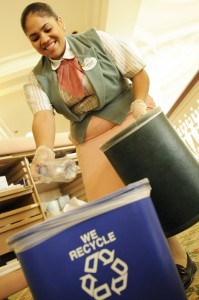 The cast of the Walt Disney World® Resort has committed to minimizing their overall impact on the environment. Many operational changes have placed emphasis on effectively managing resource used through energy conservation and waste minimization, while also focusing on conserving the natural environment through science, education and leadership efforts.
The cast of the Walt Disney World® Resort has committed to minimizing their overall impact on the environment. Many operational changes have placed emphasis on effectively managing resource used through energy conservation and waste minimization, while also focusing on conserving the natural environment through science, education and leadership efforts.
Here is just a few of the many changes in day-to-day operations the Walt Disney World® Resort have implemented all in the name of conservation:
- Walt Disney World® Resort has deployed more than 1,500 alternatively fueled vehicles-ranging from golf carts to Monorail trains to help lower emissions. They also replaced the entire fleet of Security vehicles with hybrids and other fuel-efficient options. This effort has reduced fuel consumption by an average of 33% per vehicle.
- Walt Disney World® Resort installed energy-saving fixtures throughout the property. During an update at The Hall of Presidents, Cast Members replaced theatrical lighting with more efficient and longer-lasting LED fixtures. LEDs consuming only 3-to-13 watts can replace 75-to-100-watt incandescent bulbs with equivalent light output. LED fixtures are now used in 98 percent of the signs, decorations and Christmas trees at Walt Disney World Resort. Even Cinderella Castle glows “green” during the holidays with more than 170,000 LED white lights to glisten the Castle, using the equivalent energy of only 12 microwave ovens.
- All 24 resort hotels at the Walt Disney World® Resort maintain the state’s Green Lodging designation – representing the largest number of Green Lodging-certified hotels in the state.
- More than 92,000 tons of materials were recycled in 2010 at the Walt Disney World® Resort.
- The Walt Disney World® Resort uses more than two billion gallons of reclaimed water a year for irrigation of landscape, washing buses and cleaning streets at theme parks and resorts. This amount of water could fill Spaceship Earth roughly 129 times.
- Disney Harvest reduces food waste by gathering excess prepared food from Walt Disney World® Resort kitchens and distributing it through the Second Harvest Food Bank of Central Florida. More than 1,000 local children are fed weekly through this program. In 2010, Disney Harvest gave nearly 360,000 pounds of food to the hungry in Central Florida
- Disney’s Animal Kingdom® Theme Park provides some unique forms of “waste.” In 2010, more than 4,680 tons of manure was sent to the compost facility from Disney’s Animal Kingdom and the Tri-Circle D Ranch, producing more than 9,000 tons of compost throughout the year.

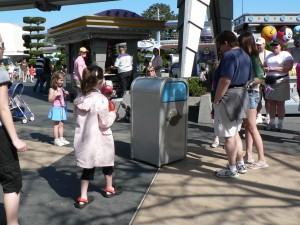
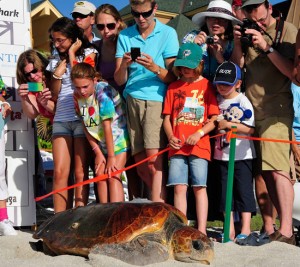
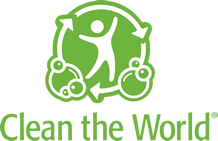
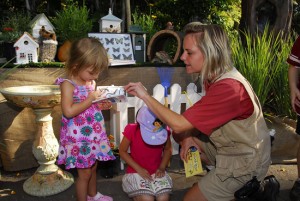
 working to make our home a better place for the next generation. Discover just a few of Disney conservation efforts:
working to make our home a better place for the next generation. Discover just a few of Disney conservation efforts: